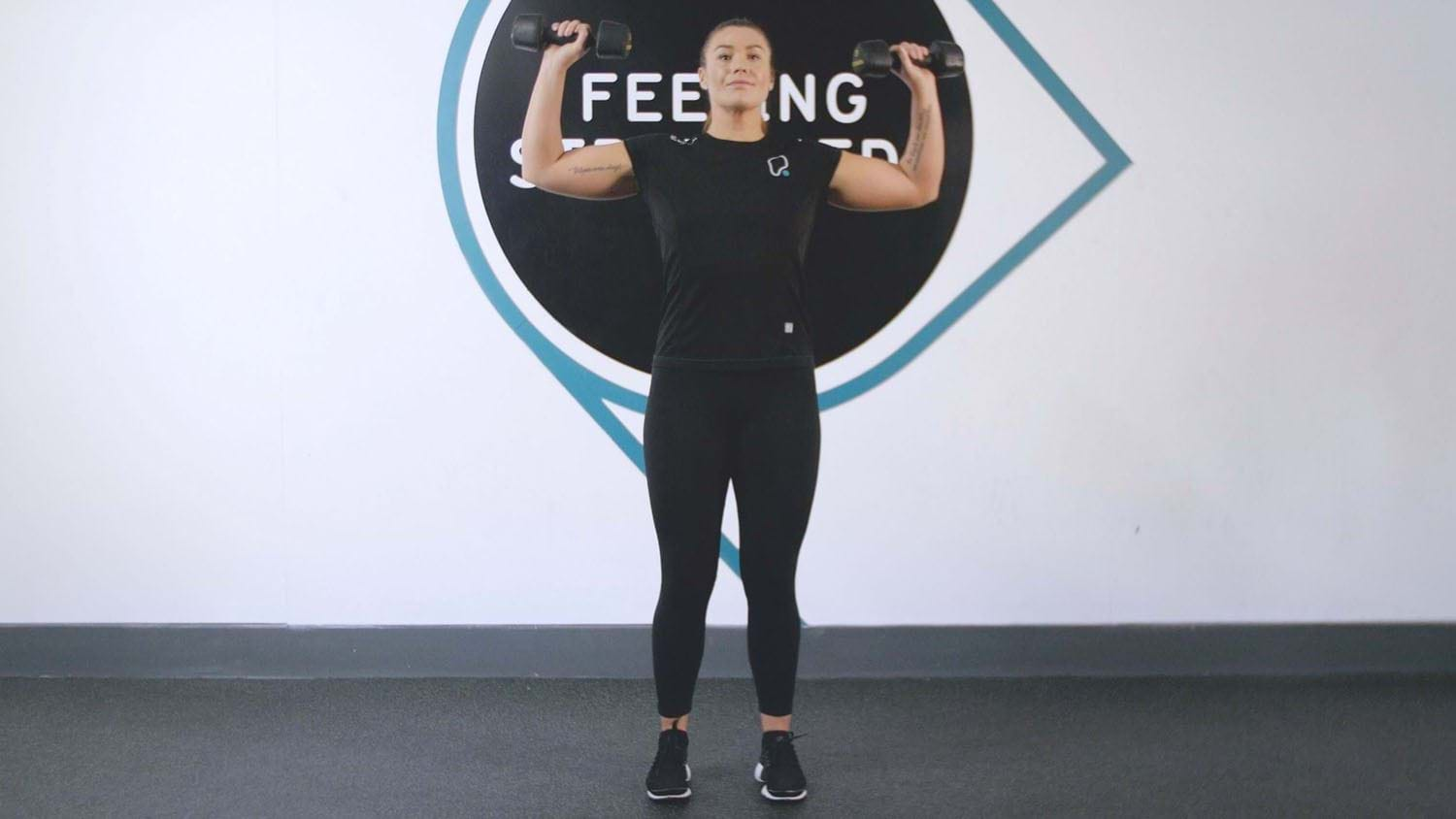Dumbbell Shoulder Press
What Is A Dumbbell Shoulder Press?

The dumbbell shoulder press is an excellent compound exercise which replicates many everyday movements and builds functional strength. The move involves pressing two dumbbells above the head and targets the deltoids and triceps, with further engagement from the upper chest and traps. If opting for the standing dumbbell shoulder press, the glutes and core are also engaged to generate stability and protect the lower back.
Although this is a bilateral exercise, the use of dumbbells allows the lifter to identify and address any muscular imbalances between the two sides.
Check out some other shoulder press variations: seated shoulder press, barbell push press, Arnold press, single arm landmine press, clean and press
Commonly Asked Questions On Dumbbell Shoulder Press
Neither the dumbbell or barbell shoulder press are inherently better or worse than each other. Barbell shoulder presses can help to keep the shoulders in the correct position; however many find this a more challenging option with greater core engagement required. The dumbbell shoulder press is more suitable for beginners as lower weights can be used, however it's a useful exercise for intermediate and advanced lifters as it can iron out muscular imbalances. Combining both in a programme can be useful.
The dumbbell shoulder press primarily targets the anterior deltoids, with further involvement from the other heads of the deltoids, the triceps and the upper portion of the pecs. The dumbbell shoulder press also requires a certain amount of core strength and stability to ensure the movement is performed correctly.
When doing a dumbbell shoulder press, choose a weight that is challenging but allows you to keep the correct form and maintain stable throughout the body. Aim to progressively overload this exercise by adding either reps or weight each week to gain strength and build muscle.
Dumbbell Shoulder Press Tips
Maintaining correct form is key to ensuring the dumbbell shoulder press targets the correct muscle groups, as well as reducing the risk of injury. When lowering the dumbbells, ensure they reach in line with, or just below, ear level – if you can’t reach this range, drop the weights until you can reach this depth and then work up.
If you feel any stress of your rotator cuff during the dumbbell shoulder press, you may be positioning your arms too close to the side of your head. Aim for your arms to be slightly in front of the body as this is more comfortable on the shoulder joint.
How To Do A Dumbbell Shoulder Press
Taking a dumbbell in each hand, stand shoulder width apart with the hips and spine in a neutral position.
Lift the dumbbells so that they are positioned in between your shoulders and ears, palms facing forward.
Engage your core and glutes and extend your arms to press the dumbbells above your head. Keep your feet flat on the floor throughout the movement.
Slowly lower the dumbbells back to the starting position, making sure to keep the torso stable throughout.
If you’re not sure if any of the above exercises are suitable for you, please consult your doctor before you start it. Need guidance on how to perform the exercise? Ask a personal trainer at your gym.